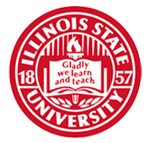Abstract
Purpose: Gender-affirming voice therapy aims to align a person’s voice and communication with their gender identity. Historically, transgender and gender-nonconforming (TGNC) individuals have been marginalized and continue to face significant healthcare disparities. The goal of this research was to examine the self-perceived preparedness of recent speech-language pathology (SLP) graduates for working with TGNC clients. A survey was developed to include both multiple choice and open-ended questions. Topics included graduate-level training on working with TGNC individuals, perceived preparedness to work with this client population, educational resources sought by respondents, and suggested improvements for SLP graduate programs. Thirty recent (since 2016) SLP graduates completed the survey anonymously. Although a majority (83%) of respondents reported that working with TGNC clients was addressed in their graduate education, 66% of respondents felt that instruction time spent on this topic was insufficient or slightly insufficient. Those who had clinical experiences with TGNC clients, or who learned from the perspectives of the TGNC community (e.g., from a guest speaker or video), reported that their graduate education better prepared them to work with TGNC clients. One of the most common recommendations to improve graduate education was to invite TGNC speakers to share their experiences. The majority of respondents identified a need for improvement of gender diversity education in SLP graduate programs. Further research is needed to determine the efficacy of different curricula in increasing the knowledge and skills of SLP graduates specific to TGNC clients to ensure clinical competency and equitable care.
Recommended Citation
Dickinson, T. E.,
Normandin, M. A.,
&
Mulheren, R. W.
(2023).
Gender Diversity Cultural Responsiveness Education in Speech-Language Pathology Graduate Programs: A Pilot Survey.
Teaching and Learning in Communication Sciences & Disorders, 7(2).
DOI: https://doi.org/10.30707/TLCSD7.2.1690393489.698367




